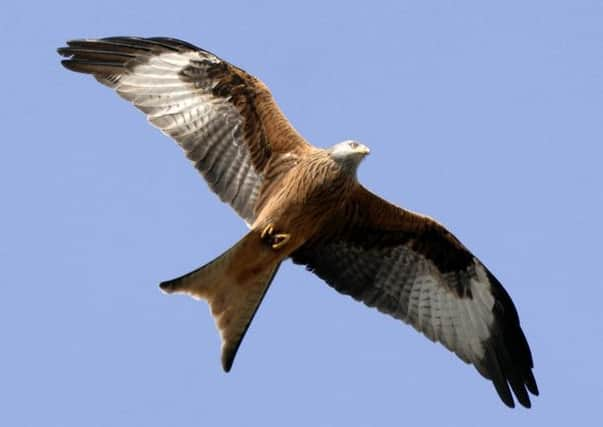Raptor deaths ‘threaten Scottish wildlife tourism’


The deaths of 14 red kites and five buzzards in a two-square-mile area of Ross-shire has attracted widespread condemnation.
Police are investigating the bird of prey killings, while a reward fund for information leading to a successful prosecution has risen to almost £30,000.
‘Grim and distressing’
Advertisement
Hide AdAdvertisement
Hide AdIan Ross, chairman of Scottish Natural Heritage, has now spoken out about the deaths, and the risk it poses to wildlife tourism.
He said: “I would like to state that we in SNH condemn any form of wildlife crime and the growing catalogue of suspected cases in the Black Isles is shocking, grim and distressing.
“Nature-based tourism is worth £1.4 billion a year to Scotland’s economy. It’s clear that acts like this detract from that value and diminish Scotland’s appeal as a major wildlife tourism destination.
“They can also damage the local economy as many locals and visitors are keen to see these magnificent birds in the wider countryside. And, of course, it causes an appalling level of natural heritage and wildlife damage.”
‘Committed to stamping out wildlife crime’
He said SNH was committed in this case to working strongly in partnership with Police Scotland, and other members of the Partnership Against Wildlife Crime Scotland (PAWS) to stamp out wildlife crime in Scotland.
Mr Ross added: “We support any measures to help protected species like red kite, and cases of this nature are a major obstacle to ensuring that aim. As an organisation, SNH has put considerable resources into the reintroduction of red kites.
“SNH works closely with Police Scotland and the National Wildlife Crime Unit on wildlife crime allegations and we part-fund a police officer seconded from Police Scotland to the National Wildlife Crime Unit to support police operations.”